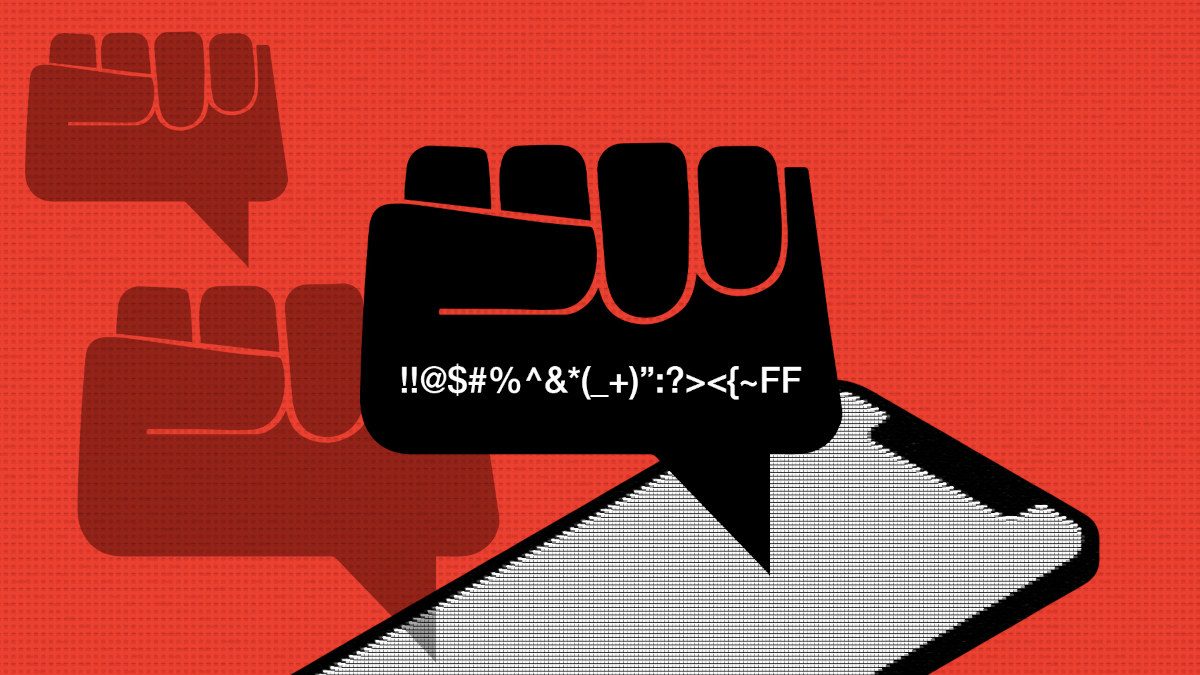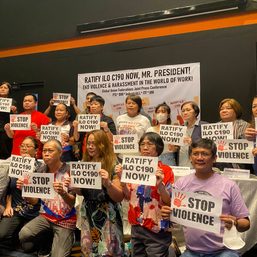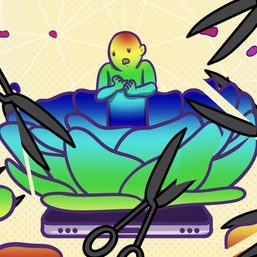SUMMARY
This is AI generated summarization, which may have errors. For context, always refer to the full article.

Just days after Twitter accepted Elon Musk’s $44 billion offer to buy the company, the South African-born tech magnate went after one of the company’s top attorneys, Vijaya Gadde. As the company’s legal, policy and trust lead, Gadde has been a key figure in establishing content policy at Twitter, including the decision to ban Donald Trump from the platform.
On April 27, Musk took a cheap shot at Gadde, mocking past decisions made by her team. Gadde, who is female and hails from India, soon faced a barrage of harassing messages, including racist and sexist insults. Musk was all but proving that point that many had made surrounding his bid to buy the company: under his ownership, Twitter may become a much more hostile place, especially for women and LGBTQ people.
Whether it’s a top executive at Twitter, a BBC reporter in Iran, or a Muslim feminist activist in India, or a journalist at The Washington Post in the US, women and sexual minorities – especially those with a public profile – face various kinds of online abuse, from violent threats and hate speech on social media to doxxing attacks that expose their personal information. Since the start of the pandemic, online abuse and harassment has become more severe for women, especially women of color, and LGBTQ people.
Many advocates say tech companies should do more to tackle online abuse, but with people like Musk in charge, it’s hard to see this happening any time soon.
For the foreseeable future, it will be up to those who are targeted to take individual actions to protect themselves. Last week, I spoke with a few key voices dealing with online harassment and gathered their insights.
Speak out, but don’t feed the trolls
Zeba Warsi, a journalist from India, has extensive experience with online abuse.
“In the beginning I used to reply to every single troll who would lash out with abusive language or be disrespectful. I used to respond to them and then I started realizing when I would respond to people — especially to accounts which were just like bots, with close to no followers, who were thriving on hate — I was in fact giving them more traction by engaging with them. So then I eventually stopped responding.”
Though it doesn’t mean she’s not speaking out. “Address the issue on your own platform, post about it, tweet it, but don’t engage with them. Don’t give them the platform, they don’t deserve it,” Warsi told me.
The latest major attack she endured was in January, when she appeared in a fake auction app in India, called Bulli Bai, that included profiles and photographs of more than 100 Muslim women, offering them up “for sale.” Like Warsi, most of the women featured in the app are Muslim and do public-facing work — among its targets were politicians, other journalists, and the Pakistani activist and Nobel laureate Malala Yousafzai.
She said disengaging with the trolls has helped her mental wellbeing. Warsi is now pursuing a journalism degree at Columbia University.
“I decided to take a break from my career in India and get this distance from all that hate. And despite all that distance, it still haunts me. You wake up to it, on the 1st of January, the beginning of new year and you get so many messages from your friends and colleagues that your picture is being plastered on this disgusting, degrading, humiliating, fake auction.”
“It gets to you,” she said. I had a very distressing phone call with my father back home in India. He was really upset and he was really scared for my safety, even though I’m not physically in India, because that’s the kind of fear that it creates.”
Separate the personal from the professional
Warsi also recommends keeping personal and professional lives separated online as much as possible.
“I have this sort of division between what is public for me and what is private. I think it helps me to have more control over my social media. So my Twitter is public where I put out my work and my Instagram is private, which is only for my friends and family. So I keep my account private so random Twitter or Instagram trolls are not going to find me there,” Warsi said.
Keep a record
Gwen Taylor, a program manager at Glitch, a U.K.-based nonprofit working to eliminate online abuse, suggests documenting the abuse.
“Documenting online abuse is a really important step, not only to empower yourself to understand the patterns that are happening, but also to empower you to report it if you decide to do so, and it’s validating, in a way, that it is difficult and it is traumatic,” they said.
Be an ‘active bystander’
Warsi and Taylor both said when it comes to online abuse, having support and community is essential. But being a part of that supporting network also requires knowledge of how to do it.
Taylor says reaching out to people is extremely useful, as online abuse can be so isolating, but it requires thoughtfulness: “Whether you know them or not, just don’t take action without their consent. Online abuse can feel very disempowering. You might think you’re doing the right thing by reporting it, or by replying to it, but actually that might not be what the person wants. So reaching out, checking in with the person. Maybe giving them options of like, ‘I was thinking of doing this. Is that okay? Is there something else you want?’”
Having a network that can report abuse on your behalf can be very powerful and much more effective than doing it alone, says Taylor.
They pointed to a group of women parliamentarians across countries in Africa who had formed a WhatsApp group to organize this kind of support. “Whenever one of them receives online abuse they go into chat and they’re like, ‘Can you help?’ It’s really powerful, having this network that empowered people that can go in and be like ‘Yes, I’m going to come and report that for you and help,’” Taylor told me.
Amplify their voice, not their victimhood
The other advice Taylor gave on how to empower people being harassed and abused online is to amplify the person, not the abuse.
“Not amplifying the post that’s getting the abuse, but in general, just amplifying their messages, their work. If it’s an artist, retweeting. If it’s somebody writing, saying that you like their writing or encouraging other people to read it,” they told me. “Because often what happens in incidents of online abuse is that the conversation ends up getting totally focused around the abuse. And actually, we want to take away from that. We don’t want to give the person being abusive that power.” – Rappler.com
This article has been republished from Coda Story with permission.
Add a comment
How does this make you feel?
















There are no comments yet. Add your comment to start the conversation.